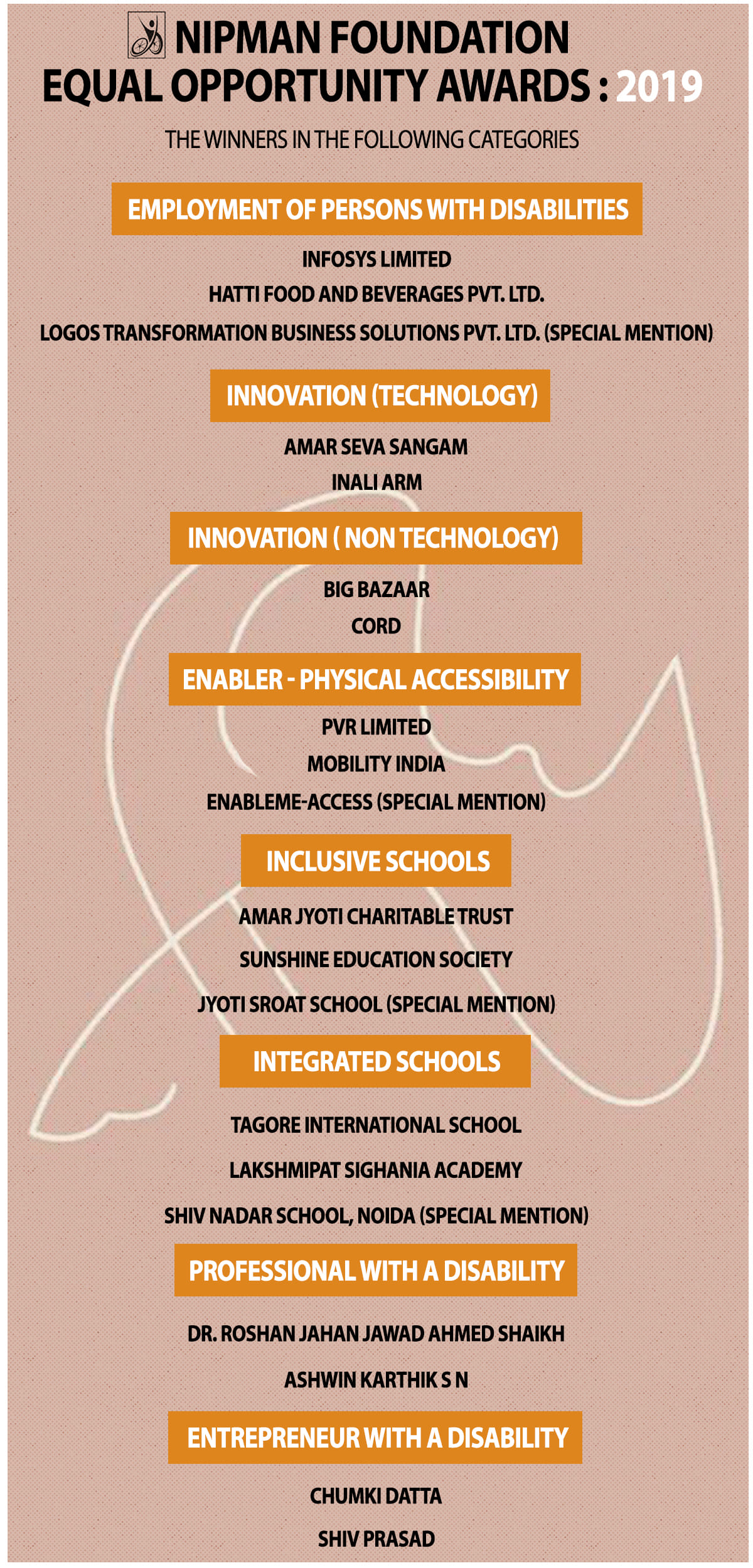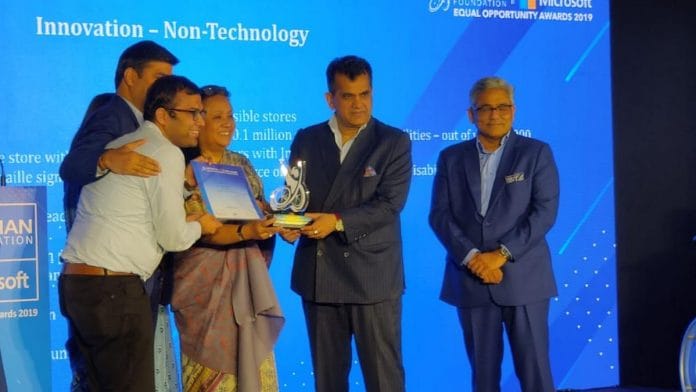New Delhi: Being disability friendly is not just about compassion but also a lesson in business and economics, Niti Aayog chief executive Amitabh Kant said at the Equal Opportunity Awards held Wednesday.
“Persons with disabilities add immensely to businesses — research shows that inclusive companies are as likely to have twice the shareholder returns compared to their peers,” said Kant, who as chief guest at the event.
The Nipman Foundation’s Equal Opportunity Awards recognise organisations that employ people with disabilities.
Launched in 2014 to showcase the business opportunities of investing in persons with disabilities, the event has grown to commemorate individuals who have made significant contributions to several categories, from enabling ease of access to entrepreneurs with disabilities.
“We must employ, engage, empower, and enable persons with disabilities, so they can lead the nation and take India forward,” said Kant.
The sixth edition of the event was jointly held with Microsoft in the national capital.
Also read: Why Game of Thrones makes people with disabilities both happy and sad
Entrepreneurs, innovators, and enablers
This year, the Equal Opportunity Awards were given under seven categories including employers of persons with disabilities, physical accessibility, inclusivity, technological and non-technological innovations to ease access, and professionals and entrepreneurs with disabilities.
Among the winners were PVR Ltd and Mobility India for making spaces more accessible, technology firm Inali Arm for creating an affordable prosthetic arm, and panchayat and community-based rehabilitation platform CORD, for working on an inclusion model for persons with disabilities in rural spaces.
Individuals were also awarded for being pioneers in their field.
Dr Roshan Jahan Jawad Ahmed Sheikh, a doctor with a visual impairment and locomotor disability, won under the category of ‘Professional with Disability’.
Former vice-captain of the Indian Wheelchair Cricket team, Shiva Prasad, who started the Divyaang Myithri Sports Academy, was awarded in the ‘Entrepreneur with Disability’ category.

“We received 219 applications this year, making it so very difficult for our panel of jurists to decide who the award should go to,” said Nipun Malhotra, CEO of the Nipman Foundation and host of the event.
The jury was chaired by Shamika Ravi, director of research at Brookings India and former member of the Prime Minister’s Economic Advisory Council. Ravi wasn’t present at the event but registered her participation through a video. She urged the audience to be “more inclusive and mindful of persons with disabilities”.
Future of tech and disability
At the event, Nipun Malhotra, who is wheelchair-bound due to a rare congenital disorder arthrogryposis, discussed the impact of technology on accessibility with Hector Minto, senior technology evangelist EMEA, Microsoft, and Clint Covington, principal program manager, Microsoft Redmond.
“Technology equalises. By 2023, technology will help triple the number of people with disabilities get employed. Tomorrow’s world is digital, and it must be accessible,” said Minto.
“Governments and companies must take the risk of hiring more persons with disabilities and asking vendors to be accessible. It’s a risk worth taking, because persons with disabilities are an asset — they add more efficiency to work, and offer solutions you can’t think of yourself,” said Covington.
Shakuntala Gamlin, Secretary, Department of Empowerment of Person with Disabilities, and guest of honour at the awards, reminded that rural spaces were still largely deprived of accessibility.
“A lot of accessibility innovation is urban-centric, and we need to think of how to make building infrastructure more accessible for rural spaces. We also need to see that training modules are customised so that persons with disabilities aren’t forced to migrate to learn a new skill,” said Gamlin.
ThePrint was a digital partner for the event.
Also read: Javed Abidi didn’t seek favours, he was taking back rights for the disabled






